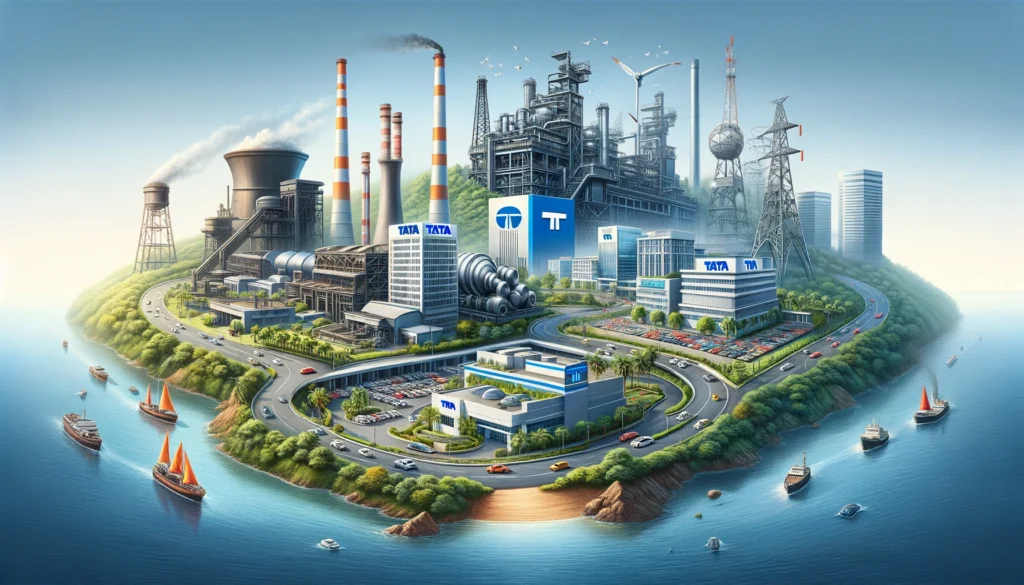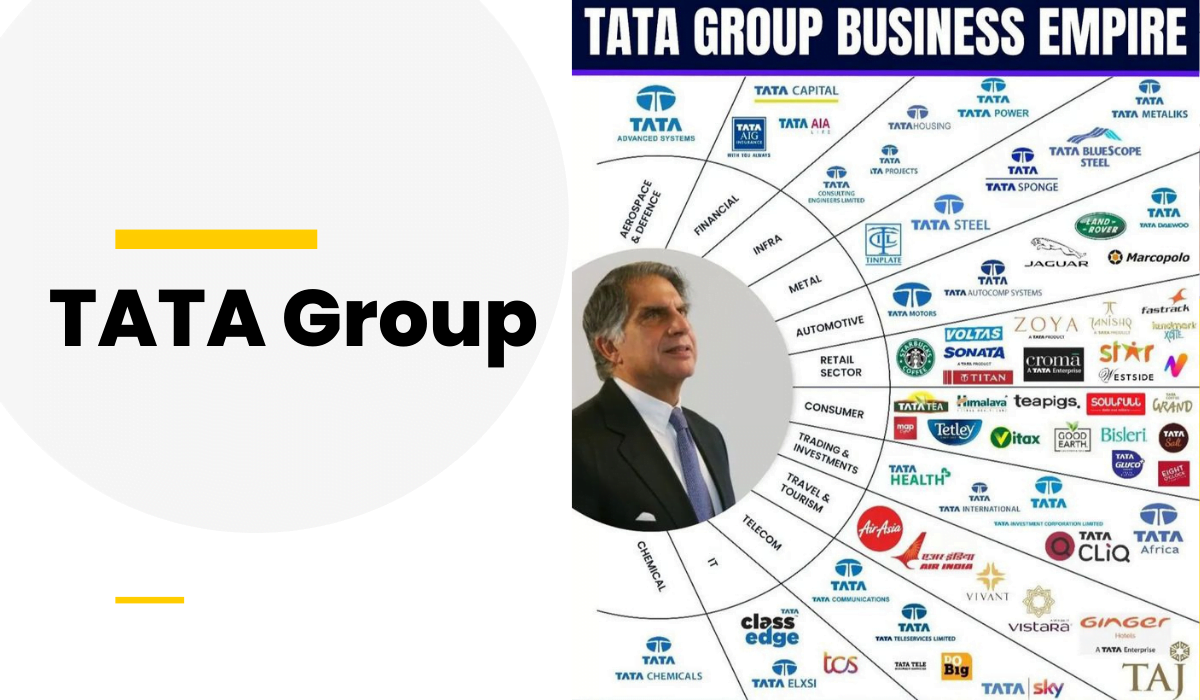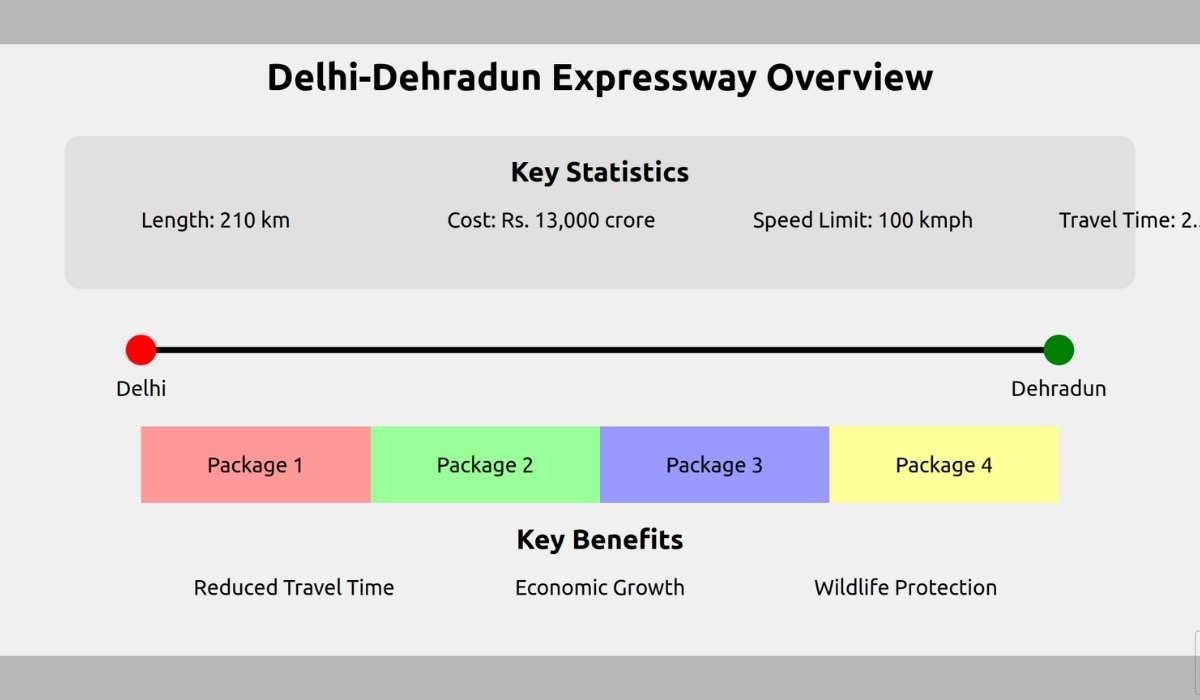In Indian history, few names stand out like the Tata family. Their contributions to India’s growth and development are unmatched, making them an inspiration for generations. From steel to IT, education to healthcare, the Tatas have left a lasting impact on India. This article explores the amazing journey of the Tata Group and the visionary leaders who shaped its destiny.
The Tata Empire: A Quick Look
The Tata Group includes over 100 companies, with 29 listed on the stock market. Tata companies make up 9% of the total market value of the Bombay Stock Exchange (BSE). The group is the third-largest employer in India, with 935,000 employees, only behind the Indian Army and Railways. In the fiscal year 2021-22, the Tata Group’s total turnover exceeded 10 lakh crores, with 67% of its revenue coming from outside India. Tata products and services are available in more than 150 countries, with operations in over 100 nations. In 2018, the Tata Group paid taxes amounting to 2.25% of India’s total tax collection, equivalent to the combined tax collected by the states of Assam, Goa, Himachal Pradesh, and Odisha in a year.
The Tata Trusts: Best in Philanthropy
One of the most remarkable things about the Tata Group is its commitment to giving back. Most of the group’s ownership lies with charitable trusts, ensuring that the wealth generated is used for society’s betterment. Sir Dorabji Trust holds 22% of Tata Sons’ shares. Sir Ratan Tata Trust owns 23% of the shares. JRD Tata Trust has 4% of the shares. Ratan Tata, the former chairman, holds less than 1% of Tata Sons’ shares, showing the family’s dedication to societal welfare.
Jamshedji Tata: The Father of Indian Industry
The Tata story began 152 years ago, in 1868, with Jamshedji Tata. Known as the father of Indian industry, his visionary spirit laid the foundation for the group’s success.
- Empress Mill (1874): Jamshedji Tata started the Empress Mill, a textile mill that changed labor practices. He introduced the provident fund system, insurance, sports days, family days, and employee incentives, setting new standards for worker welfare.
- The Four Dreams: Jamshedji Tata had four dreams for India:
- A steel plant
- A hydro power plant
- A world-class educational institution
- A grand hotel
- Tata Steel: Despite doubts from the British, Jamshedji Tata founded Tata Steel, which played a crucial role in World War I by supplying tanks that helped the British win. The village of Sakchi, where the steel plant was located, was later renamed Jamshedpur in his honor.
- The Taj Mahal Hotel: In response to discriminatory practices by British hotels, Jamshedji Tata built the iconic Taj Mahal Hotel, a symbol of Indian pride and hospitality.
- The Tata Institute of Science (now IISc): Jamshedji Tata donated 1.25 lakh rupees (equivalent to 8,000 pounds) to establish a world-class educational institution. He even sold 17 buildings in Mumbai to fund this visionary project.
- Tata Scholarships: In 1892, when higher education in India was rare, Jamshedji Tata started offering scholarships through the Tata Foundation, helping many Indians, including future President K.R. Narayanan and several Chief Justices of High Courts, to pursue their studies.
Dorabji Tata and Ratan Tata: Continuing the Legacy
Following in Jamshedji Tata’s footsteps, his sons, Dorabji Tata and Ratan Tata, continued the legacy of nation-building and philanthropy.
- Dorabji Tata completed the hydroelectric power project and the steel plant, overcoming financial challenges by pledging his wife’s diamond, which was more valuable than the Kohinoor.
- Dorabji Tata sponsored 20% of the first Indian IAS officers, enabling them to receive training in England.
- Dorabji Tata established the Tata Industrial Bank, which was later acquired by the government and renamed the Central Bank of India.
- He also founded a new insurance company, which was subsequently nationalized by the government.
- Ratan Tata, Jamshedji’s other son, funded Gopal Krishna Gokhale’s freedom movement and Mahatma Gandhi’s struggle against racism in Africa.
- Ratan Tata also provided financial support for the excavation of Harappa, preserving India’s ancient civilization.
JRD Tata: The Revolutionary Leader
Under JRD Tata’s leadership, the Tata Group saw extraordinary growth, expanding from 14 companies to 95.
Unlock Your Dream Home Today!
Get personalized real estate insights delivered straight to your inbox.
- JRD Tata introduced Tata Motors and TCS, two of the group’s crown jewels.
- He established India’s first airline, which later became Air India.
- During his tenure, the Tata Group’s valuation grew from 101 million dollars to 5 billion dollars.
Ratan Tata: The Acquisition King
Ratan Tata, the most recent chairman of the Tata Group, earned the title of “Acquisition King” for his strategic acquisitions and product innovations.
- He acquired Tetley for Tata Tea and Corus for Tata Steel, strengthening the group’s global presence.
- Under his leadership, Tata launched the Indica, India’s first indigenously developed car, and the Nano, the world’s most affordable car.
- Ratan Tata also oversaw the acquisition of luxury car brands Jaguar and Land Rover, further expanding the group’s international footprint.
- He deftly handled the 26/11 terrorist attack on the Taj Mahal Hotel, demonstrating remarkable leadership and compassion.
The Tata Group’s Contributions to Indian Infrastructure
The Tata Group has been instrumental in developing India’s infrastructure, with significant contributions across various sectors:
- Steel: Tata Steel, the first steel plant in India, has been a driving force behind the nation’s industrialization and infrastructure development.
- Power: Tata Power, India’s largest integrated power company, has been at the forefront of providing reliable and sustainable energy solutions to the country.
- Telecommunications: Tata Communications, a leading global digital infrastructure provider, has played a crucial role in connecting India to the world through its extensive network.
- Automotive: Tata Motors, India’s largest automobile manufacturer, has revolutionized the industry with iconic vehicles like the Tata Indica and the Tata Nano, making personal transportation accessible to millions.
- Information Technology: Tata Consultancy Services (TCS), India’s largest IT services company, has been a catalyst for the country’s digital transformation, driving innovation and creating employment opportunities.
The Tata Group’s Commitment to Education and Research
Education and research have always been at the heart of the Tata Group’s philosophy. The group has established numerous institutions of excellence, nurturing talent and fostering innovation.
- The Indian Institute of Science (IISc), one of India’s premier research universities, was founded with the support of Jamshedji Tata.
- The Tata Institute of Fundamental Research (TIFR), a world-renowned institution for scientific research, was established by the Tata Group.
- The Tata Institute of Social Sciences (TISS), a pioneering institution in the field of social sciences, has been instrumental in addressing societal challenges and promoting inclusive development.
The Tata Group’s Global Presence

The Tata Group’s reach extends far beyond India, with a significant global presence across various industries.
- Tata Steel Europe, formerly known as Corus, is one of Europe’s leading steel producers, with operations in the United Kingdom, the Netherlands, and other European countries.
- Jaguar Land Rover, the iconic British luxury car manufacturer, is owned by Tata Motors, showcasing the group’s ability to acquire and successfully manage international brands.
- Tata Global Beverages, the world’s second-largest tea company, has a portfolio of beloved brands like Tetley, Tata Tea, and Eight O’Clock Coffee, enjoyed by millions worldwide.
- Tata Chemicals, a leading global producer of chemicals and crop nutrition products, has operations in India, the United States, the United Kingdom, and Kenya, among other countries.
The Tata story is a testament to the power of vision, perseverance, and unwavering commitment to the greater good. From humble beginnings to a global conglomerate, the Tatas have shown that business can be a force for positive change, uplifting communities and shaping the destiny of a nation. As we continue to navigate the challenges of the modern world, the Tata legacy serves as a guiding light, reminding us of the transformative potential of compassionate leadership and the enduring value of serving others.
The Tata Group’s impact on India and the world is immeasurable. From catalyzing industrialization and infrastructure development to promoting education, research, and social welfare, the Tatas have left a lasting mark on society. Their commitment to ethical business practices, sustainable growth, and the upliftment of communities sets a shining example for corporations worldwide.
As India continues its journey towards becoming a global economic powerhouse, the Tata Group remains a beacon of hope and inspiration. The visionary leadership, innovative spirit, and unwavering dedication to nation-building that have defined the Tata legacy will undoubtedly continue to shape India’s future for generations to come.
In a world that often prioritizes short-term gains and individual success, the Tata story serves as a powerful reminder of the true purpose of business: to create value, not just for shareholders, but for all stakeholders – employees, customers, communities, and the nation at large. It is a call to business leaders to embrace a higher purpose, to think beyond profits, and to strive for the greater good.
As we reflect on the extraordinary journey of the Tata Group, we are inspired to dream bigger, to act bolder, and to make a meaningful difference in the lives of others. The Tata legacy is not just a chapter in India’s history; it is a guiding light for a brighter, more compassionate future – a future where businesses are not just engines of economic growth, but also catalysts for positive social change.
the Tata story is a timeless tale of philanthropy, innovation, and nation-building. It is a testament to the power of visionary leadership, ethical business practices, and an unwavering commitment to the greater good. As we navigate the challenges and opportunities of the 21st century, let us draw inspiration from the Tata legacy and work together to build a better, more inclusive world for all.
Read More Stories – Ratan Tata: The Untold Love Story
Ratan Tata’s Leadership: 7 Inspiring Lessons from India’s Business Icon
The Tata Group operates in various sectors including steel, IT, education, healthcare, power, telecommunications, automotive, and chemicals.
The Tata Group is the third-largest employer in India, with approximately 935,000 employees.
In 2018, the Tata Group paid taxes amounting to 2.25% of India's total tax collection.
Jamshedji Tata is known as the father of Indian industry for his visionary contributions and establishment of key industries.
Jamshedji Tata had four dreams for India: a steel plant, a hydro power plant, a world-class educational institution, and a grand hotel.
Ratan Tata, known as the 'Acquisition King', was instrumental in strategic acquisitions and product innovations, including the launch of the Tata Indica and the acquisition of Jaguar and Land Rover.
The Tata Group has established several prestigious institutions, including the Indian Institute of Science (IISc), Tata Institute of Fundamental Research (TIFR), and Tata Institute of Social Sciences (TISS), promoting education and research.
Jamshedji Tata introduced several labor welfare practices at the Empress Mill, such as the provident fund system, insurance, and employee incentives.
The Tata Group has significantly contributed to India's infrastructure through Tata Steel, Tata Power, Tata Communications, and Tata Motors, among others.
The Tata Group's legacy is characterized by visionary leadership, ethical business practices, philanthropy, and a commitment to creating value for all stakeholders, which has inspired generations.
DISCLAIMER
The information provided on this website is for general informational purposes only. While we strive to keep the content up-to-date and accurate, we make no representations or warranties of any kind, express or implied, about the completeness, accuracy, reliability, suitability, or availability of the information, products, services, or related graphics contained on this website.
In no event will we be liable for any loss or damage including without limitation, indirect or consequential loss or damage, or any loss or damage whatsoever arising from loss of data or profits arising out of, or in connection with, the use of this website.
Real Estate Investment Risks
Real estate investments involve significant risks and market volatility. Property values, rental rates, and market conditions can fluctuate. Past performance is not indicative of future results.
Before Making Real Estate Decisions
Before making any real estate decision, we strongly advise you to:
- Conduct thorough due diligence
- Consult with qualified legal, financial, and real estate professionals
- Carefully review all relevant documents and contracts
- Consider your personal financial situation and investment goals
This website does not provide legal, financial, or investment advice. All content is for informational purposes only and should not be construed as professional advice or recommendations.
By using this website, you acknowledge and agree to these terms. We reserve the right to modify this disclaimer at any time without notice.







